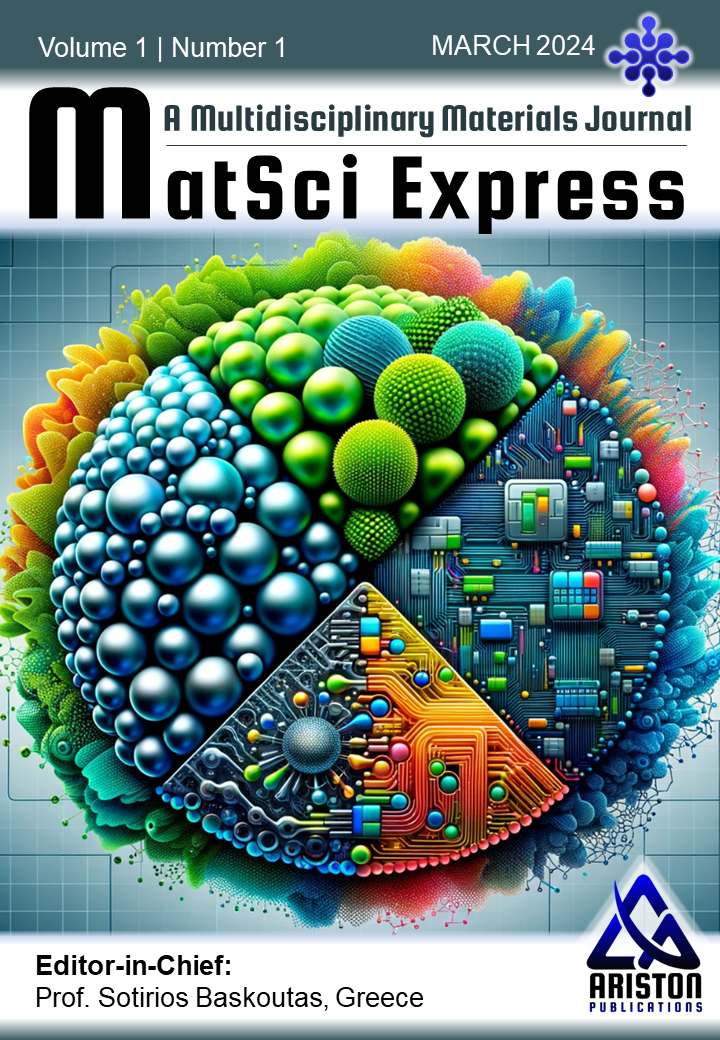Y.Y. Bleyan, S. Baskoutas, D.B. Hayrapetyan
1 Institute of Chemical Physics after A.B. Nalbandyan of NAS RA, 5/2 Paruyr Sevak St., Yerevan, 0014, Armenia
2 Russian-Armenian University, 123 Hovsep Emin St., Yerevan, 0051, Armenia
3 Department of Materials Science, University of Patras, 265 04 Patras, Greece
* Author to whom correspondence should be addressed:
yuri.bleyan@rau.am (Yuri Bleyan)
ABSTRACT
This study presents a comprehensive theoretical analysis of exciton states within a strongly prolate GaAs ellipsoidal quantum dot, specifically focusing on the influence of an external magnetic field. Employing the variational method, we have developed an exciton trial wave function based on one-particle wave functions, allowing for precise computation of exciton energy and binding energies. These computations are explored as functions of both the minor semiaxis of the quantum dot and the varying strength of the external magnetic field. Additionally, we have calculated the total magnetization of the quantum dot by deriving the total energy with respect to the magnetic field, offering insights into the magnetic properties of the system. The study further extends to estimating the radiative lifetime of the magnetoexciton, which is analyzed as a function of the small geometrical parameter and the external magnetic field. The findings provide a detailed understanding of the interplay between quantum dot geometry, magnetic field strength, and exciton dynamics, contributing to the broader knowledge of quantum dot behavior in varying electromagnetic environments.

Significance of the study:
This study significantly advances the understanding of exciton behavior in ellipsoidal quantum dots under the influence of an external magnetic field. By analyzing the intricate relationships between quantum dot geometry, magnetic field strength, and exciton dynamics, the research provides crucial insights for optimizing quantum dot-based technologies. These findings have broad implications for the design and development of advanced optoelectronic and spintronic devices, contributing to the evolving field of quantum information processing.
Summary of the study:
This study theoretically investigates exciton states in strongly prolate GaAs ellipsoidal quantum dots under an external magnetic field using the variational method. It examines the effects of the magnetic field and quantum dot geometry on exciton energy, binding energies, and magnetization. The research also estimates the radiative lifetime of magnetoexcitons, revealing critical insights into how these factors influence excitonic behavior. The findings offer valuable guidance for optimizing quantum dot-based technologies in various applications.
